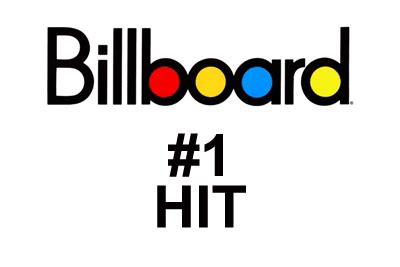
Only 74 songs, not 84 as previously and erroneously reported, have debuted at number one on the Billboard Hot 100 chart in its history, a feat highlighting the rarity and impact of instant chart-toppers. The milestone, achieved since the chart’s inception in 1958, underscores the shifting dynamics of music consumption and the power of immediate popularity.
Since the Billboard Hot 100 chart began ranking the most popular songs in the United States in August 1958, only a select few tracks have managed to achieve the extraordinary feat of debuting at the number one spot. This exclusive club, initially believed to consist of 84 songs, has been corrected to a significantly smaller and even more elite number: 74. This correction emphasizes just how challenging and exceptional it is for a song to enter the chart at its pinnacle.
The journey to number one is typically a gradual climb, with songs gaining traction through radio play, streaming, and sales. However, a debut at number one signifies an immediate and overwhelming impact, driven by various factors, including an artist’s established fanbase, strategic release timing, viral trends, and innovative marketing campaigns. The Billboard Hot 100, a comprehensive metric incorporating sales (both physical and digital), radio airplay, and streaming activity, provides a robust measure of a song’s popularity across different platforms.
The Rarity of Instant Chart-Toppers
The fact that only 74 songs have debuted at number one out of the thousands that have charted over the decades underscores the exceptional nature of this achievement. This statistic highlights the competitive landscape of the music industry and the challenges artists face in capturing the attention of a broad audience immediately upon release. The songs that do debut at number one often become cultural touchstones, reflecting the zeitgeist and resonating with listeners on a deep level.
“It’s an extraordinary feat that speaks to an artist’s immediate connection with their audience,” notes music industry analyst Maria Sanchez. “A debut at number one isn’t just about popularity; it’s about cultural impact and the ability to capture the collective imagination.”
Factors Influencing Number One Debuts
Several factors contribute to a song’s ability to debut at number one. One of the most significant is the artist’s existing fanbase. Artists with large and dedicated followings are more likely to generate the initial surge in sales and streams needed to propel a song to the top of the chart.
Strategic release timing also plays a crucial role. Releasing a song during a period with fewer competing releases or aligning it with a major cultural event can increase its chances of making a significant impact. Viral trends, often fueled by social media platforms like TikTok, can also drive a song’s popularity and contribute to its debut at number one.
Innovative marketing campaigns, including collaborations with influencers, interactive online experiences, and unique promotional strategies, can further amplify a song’s reach and generate excitement among potential listeners. The integration of music into popular video games or movies can also lead to a significant boost in streams and sales.
Examples of Notable Number One Debuts
Several songs that have debuted at number one stand out as particularly notable examples. Michael Jackson’s “You Are Not Alone” was the first song in history to debut at the top of the Billboard Hot 100 in 1995, marking a significant moment in music history and highlighting Jackson’s unparalleled influence. Mariah Carey holds the record for the most number one debuts, with several of her songs achieving this milestone, including “Fantasy” and “Honey.”
More recently, artists like Drake, Taylor Swift, and Ariana Grande have consistently demonstrated their ability to debut songs at number one, reflecting their massive popularity and strategic release approaches. These artists often leverage their social media presence and engage with their fans directly, creating a strong sense of community and anticipation around their new releases.
The Evolving Landscape of Music Consumption
The dynamics of music consumption have changed dramatically over the years, influenced by technological advancements and shifting consumer preferences. In the early days of the Billboard Hot 100, sales of physical records were the primary driver of chart success. As digital downloads became more prevalent, they played a significant role in determining a song’s ranking. Today, streaming is the dominant force, with platforms like Spotify, Apple Music, and YouTube shaping the landscape of music consumption.
These changes have had a profound impact on the way songs debut on the chart. In the era of physical sales, it was more challenging for a song to debut at number one, as it required a significant volume of records to be sold in a short period. Digital downloads made it somewhat easier, as fans could purchase songs instantly and contribute to their chart position. Streaming has further accelerated this trend, allowing songs to accumulate streams rapidly and potentially debut at the top of the chart based on their initial popularity.
Impact on the Music Industry
The ability to debut a song at number one has significant implications for artists and the music industry as a whole. It not only boosts an artist’s profile and credibility but also generates substantial revenue through sales, streams, and licensing opportunities. A number one debut can also lead to increased demand for an artist’s music, merchandise, and live performances.
For record labels, a number one debut is a major achievement that validates their investment in an artist and showcases their ability to identify and promote successful music. It can also attract new talent and strengthen their position in the competitive music market. The intense competition to achieve a number one debut has led to innovative marketing strategies and a greater focus on engaging with fans directly through social media and other online platforms.
The Billboard Hot 100 Methodology
The Billboard Hot 100 chart is based on a weighted formula that incorporates sales, radio airplay, and streaming activity. Sales data is collected from a variety of sources, including digital retailers and physical record stores. Radio airplay is monitored by Nielsen BDS, which tracks the number of times a song is played on radio stations across the country. Streaming data is compiled from leading on-demand streaming platforms.
Billboard uses a proprietary methodology to convert these data points into a single chart ranking, taking into account the relative importance of each component. The chart is updated weekly and provides a comprehensive snapshot of the most popular songs in the United States. The Hot 100 is considered the industry standard for measuring song popularity and is closely followed by artists, record labels, and music fans alike.
The Future of Number One Debuts
As the music industry continues to evolve, the dynamics of number one debuts are likely to change as well. The rise of new streaming platforms, the increasing importance of social media, and the emergence of new musical genres will all play a role in shaping the future of the Billboard Hot 100. Artists who can adapt to these changes and connect with their audience in innovative ways will be best positioned to achieve the coveted number one debut.
“The music industry is constantly evolving, and artists need to stay ahead of the curve to succeed,” says industry consultant John Davis. “The ability to engage with fans directly, leverage social media effectively, and create compelling music will be essential for achieving number one debuts in the future.”
Notable Songs That Debuted at Number One
Here are some notable songs that have debuted at number one on the Billboard Hot 100:
- Michael Jackson – “You Are Not Alone” (1995): The first song in history to debut at number one.
- Mariah Carey – “Fantasy” (1995): One of Mariah Carey’s many number one debuts.
- Whitney Houston – “Exhale (Shoop Shoop)” (1995): From the “Waiting to Exhale” soundtrack.
- Elton John – “Candle in the Wind 1997” / “Something About the Way You Look Tonight” (1997): A tribute to Princess Diana.
- Celine Dion – “My Heart Will Go On” (1998): The theme song from “Titanic.”
- R. Kelly – “I Believe I Can Fly” (1997): Inspiring song that reached the top immediately.
- Lauryn Hill – “Doo Wop (That Thing)” (1998): The only Hip Hop song by a female to reach Number One at debut.
- Britney Spears – “3” (2009): A sultry song about a ménage-a-trois.
- Taylor Swift – “Shake It Off” (2014): One of Taylor Swift’s many number one debuts.
- Drake – “God’s Plan” (2018): A track that resonated deeply with fans.
- Ariana Grande – “Thank U, Next” (2018): A powerful anthem of self-love and resilience.
- Lady Gaga – “Born This Way” (2011): An instant hit and Gay pride song.
- Baauer – “Harlem Shake” (2013): Went viral through a popular Internet meme.
- Justin Bieber – “What Do You Mean?” (2015): Signalled a change in Bieber’s musical style.
- Travis Scott – “Highest in the Room” (2019): Became a fast success due to the rapper’s popularity.
- Black Eyed Peas – “Boom Boom Pow” (2009): The first song from the group to reach number one.
This list represents just a small fraction of the songs that have debuted at number one, but it illustrates the diversity of artists and genres that have achieved this milestone.
The Significance of the Correction
The correction of the number of songs that have debuted at number one, from 84 to 74, is a significant one. It underscores the importance of accuracy in music journalism and the need for reliable data when reporting on chart performance. While the difference of ten songs may seem small, it represents a significant portion of the total number of songs that have achieved this milestone, and it highlights the rarity and exclusivity of the achievement.
The error may have stemmed from misinterpretations of Billboard chart data or confusion over different types of number one rankings. Regardless of the cause, the correction serves as a reminder that even seemingly simple statistics can be complex and require careful verification.
Conclusion
The Billboard Hot 100 remains a powerful indicator of music popularity and cultural relevance. The ability to debut at number one is a testament to an artist’s talent, fanbase, and strategic approach. As the music industry continues to evolve, the dynamics of number one debuts are likely to change as well, but the achievement will undoubtedly remain a coveted goal for artists and record labels alike.
The fact that only 74 songs have debuted at number one in the history of the Billboard Hot 100 underscores the exceptional nature of this accomplishment and highlights the competitive landscape of the music industry. These songs represent a diverse range of artists, genres, and cultural influences, and they serve as a testament to the power of music to connect with audiences on a deep and meaningful level.
Frequently Asked Questions (FAQ)
1. How many songs have actually debuted at number one on the Billboard Hot 100?
There have been 74 songs that have debuted at number one on the Billboard Hot 100 since the chart began in August 1958. This number was previously misreported as 84.
2. What factors contribute to a song debuting at number one?
Several factors influence a number one debut, including:
- Artist’s existing fanbase: Artists with large and dedicated followings are more likely to generate the initial surge in sales and streams.
- Strategic release timing: Releasing a song during a period with fewer competing releases or aligning it with a major cultural event.
- Viral trends: Social media platforms like TikTok can drive a song’s popularity.
- Innovative marketing campaigns: Collaborations with influencers, interactive online experiences, and unique promotional strategies.
- Strong streaming performance: High streaming numbers in the first week of release are crucial.
- Significant sales numbers: Downloads and physical sales still contribute to a song’s chart position.
3. Who was the first artist to have a song debut at number one on the Billboard Hot 100?
Michael Jackson was the first artist to have a song debut at number one on the Billboard Hot 100 with “You Are Not Alone” in 1995.
4. Which artist has the most songs that have debuted at number one on the Billboard Hot 100?
Mariah Carey holds the record for the most number one debuts on the Billboard Hot 100.
5. How has the changing landscape of music consumption affected number one debuts?
The shift from physical sales to digital downloads and now streaming has significantly impacted number one debuts. Streaming has made it easier for songs to accumulate streams rapidly and potentially debut at the top of the chart based on initial popularity. 6. What are some other examples of songs that debuted at number one? Some other examples of songs that debuted at Number One include, Whitney Houston – “Exhale (Shoop Shoop)” (1995), Elton John – “Candle in the Wind 1997” / “Something About the Way You Look Tonight” (1997), Celine Dion – “My Heart Will Go On” (1998), Britney Spears – “3” (2009), Taylor Swift – “Shake It Off” (2014), Drake – “God’s Plan” (2018) and Ariana Grande – “Thank U, Next” (2018).
7. What is the importance of a song debuting at number one?
Debuting at number one is a major achievement in the music industry. It not only elevates the artist’s profile and credibility but also generates significant revenue through sales, streams, and licensing opportunities. It can also lead to increased demand for an artist’s music, merchandise, and live performances.
8. How is the Billboard Hot 100 chart calculated?
The Billboard Hot 100 chart is based on a weighted formula that incorporates sales (both physical and digital), radio airplay, and streaming activity. Billboard uses a proprietary methodology to convert these data points into a single chart ranking, taking into account the relative importance of each component.
9. What role does social media play in a song’s chance of debuting at number one?
Social media platforms, especially TikTok, can significantly impact a song’s popularity and contribute to its debut at number one. Viral trends and challenges on these platforms can drive a song’s visibility and engagement, leading to increased streams and sales. Artists often leverage their social media presence to engage with fans directly, creating a strong sense of community and anticipation around their new releases.
10. How might the future of number one debuts change as the music industry continues to evolve?
As the music industry continues to evolve, the dynamics of number one debuts are likely to change as well. The rise of new streaming platforms, the increasing importance of social media, and the emergence of new musical genres will all play a role in shaping the future of the Billboard Hot 100. Artists who can adapt to these changes and connect with their audience in innovative ways will be best positioned to achieve the coveted number one debut.









